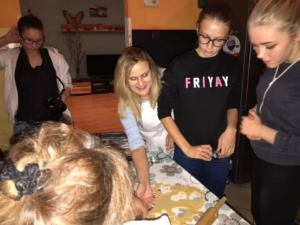BC21
BC21
Building 21st century competencies
We live in a fast-moving and ever-evolving time. A report authored by the Institute For The Future (IFTF) and a panel of 20 tech, business and academic experts from around the world states that 85 per cent of the jobs that will exist in 2030 haven’t even been invented yet. As so, a significant change in education is not only necessary but also urgent and conceived in ways where we can prepare our students for a world we do not yet know. Mainly, a trend is set where schools in the 21st century are no longer seen as a huge information conveying system, but as a competence building system, where students acquire a diverse set of competencies that will allow them to become active and productive citizens of the future.
At the core of many different sets of 21st-century competencies acknowledge by up-to-date educational literature, one can find the 4Cs: Critical Thinking, Collaboration, Communication, and Creativity. These will lay the basis for this project.
On the other hand, when building our future, we must be aware of our past. That claims for a critical knowledge of our cultural heritage, where we will find answers and solutions to the problems History challenged our ancestors with.
Combining both Past and Future, the objectives of this project are to bring students closer to the common cultural heritage of Europe, through a wide and diverse set of activities thought to build in our students’ core competencies for the 21st century, namely the 4 Cs.

Our Team
Mobilities
TPM 1 / LTTA 1 - Poland - November 2018
LTTA 2 - Greece - March 2019
TPM 2 - Portugal - June 2019
LTTA 3 - France - November 2019
LTTA 4 - Portugal - May 2020
Climate Exchange
Climate Changes vs Today's Life Styles:
a new challenge for European youth
In spite of being an up-to-date subject in schools around Europe nowadays, climate change is not something pupils are aware of in their everyday lives, nor the social changes they entail. Children need to be taught about it – and that’s what science teachers, geography teachers, biology teachers, history teachers all around Europe are trying to do.
But it will certainly be much more relevant to pupils if they can measure climate change themselves, if they can compare results from all over Europe and come up – with their teachers help – with ways to cope with it, identifying real impacts of climate change on a day to day activities.
To be able to do that, our pupils must be ready to deal with climate labs or meteorological stations in a scientific way and teachers must be prepared for the challenges of hands-on science teaching. Another way of stating the same ideas is to say that curriculum knowledge about climate change has to be relevant to our students. Teachers should be able to convey it through experimental activities that both appeal to the common experience of the students and foster scientific attitudes towards the world and their future experience.

Our Team

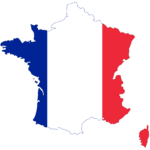

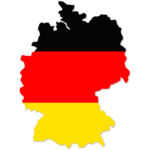


Mobilities
TPM 1 - Germany - October 2015
TPM 2 - Portugal - September 2016
LTTA 1 - Poland - February 2016
LTTA 2 - Italy - May 2016
LTTA 3 - Lithuania - November 2016
LTTA 4 - Germany - March 2017
TPM 4- France - May 2017
Learning by Doing (LBD)
Learning by Doing (LBD)
On the 21st Century, Education must be seen in a different way. The Learning Process should be relevant and practical, not just passive and theoretical. To prepare students for the future is extremely important to develop their creativity, critical thinking, communication and collaboration. The target groups will be students from ages 6 to 10/11 years old. Our students will learn by doing different things in our surroundings, in forests, on beaches, in parks, in all kind of environments near us. We are not going to stay inside schools, but we are going out of our schools. We are going to use active, diverse learning methods, where the main focus is the students’ participation. In teaching, learning and documentation we will use ICT technology as much as possible. Today, we live in a technology and media-suffused environment with access to an abundance of information, rapid changes in technology tools, and the ability to collaborate and make individual contributions on an unprecedented scale. That’s what the project will be run internationally.
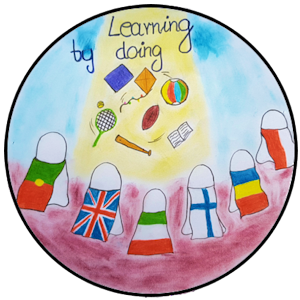
Our Team






Mobilities
TPM - Romania - January 2019
LTTA 1 - Finland - March 2019
T&T - Teaching and Technology for European Students
LTTA 2 - Portugal - June 2019
Leadership - Taking groups outdoors
LTTA 3 - Poland - October 2019
STEM - Science, Technology, Engineers and Mathematics
LTTA 4 - Italy - May 2021 - Virtually Mobility due to Covid Situation Inclusion on disadvantaged groups
Inclusion activities
English Language Day
Unesco World Heritage
Fauna and Flora book
TPM 2- London - July 2021
Virtually Mobility due to Covid Situation
OLEE
OLEE
The project´s focus lies on online learning using new technologies and up to date freeware applications in class. To give the students a concrete topic to deal with, we decided to let them work on sustainability, i.e. resources and renewable energy. The acquisition of digital competences within Europe is a challenge, as in Europe there are differences in the progress of digitalisation. Thus, the project intends to balance the knowledge and accessibility of online learning with partner schools. Long-distance learning is emphasized between the LTTAs. Even ultra-peripheral regions like the Azores can collaborate with the European mainland.
The LTTAs themselves focus more on direct personal interaction of the students to enhance the intercultural exchange and usage of English as a lingua franca.

Our Team




Coordination: Czech Republic
Mobilities
TPM 1 - Terceira- Azores - October 2018
LTTA 1 – Braunschweig, December 2018
LTTA2 – Thessaloniki, April 2019
TPM 2 – Granada, May 2019
LTTA3 – Terceira, October 2019
TPM 3 – Braunschweig, June 2020
OMIT
OMIT
Odyssey: Migrations and its Influence on Teenagers
Since the beginnings of time people have migrated in search of better living conditions. All humans want to live in peace, happiness and prosperity and according to the UN Charter or human rights, it is within their privileges to do so. Unfortunately, the unrest, violence and wars occurring in the world have in recent years created an inflow of migrants for Europe. The number of migrants reaching Europe by boat this year has skyrocketed. On one side, we have EU policy and rules related to migrants, but on the other EU citizens and especially the younger generations are not prepared to deal with this big challenge of migration. Our priority in undertaking this project is to help our youngsters examine, comprehend and deal with the issue.
All over Europe, our students are being confronted with a variety of attitudes. The media bombards them with opinions that are often passed on as news although they may be only opinions. As educators, it is our duty to teach that migratory patterns are not a new concept and to help students decide on appropriate attitudes to deal with it.
The scope of this project is, therefore, within the limited range of our schools’ resources and reach, to promote a historical approach to migration, disseminating the idea that we are all migrants, from one age or another, to increase sensitivity and awareness towards the migration phenomena, to strengthen moral and intellectual knowledge on migration and endorse values like tolerance, respect, fraternity, to dismantle false beliefs and prejudices on migrants and finally to reinforce the significant idea that should underline the attitude towards migration: they are us! Ultimately, to create an awareness of how complex the topic of migration is and what effects it has on societies.
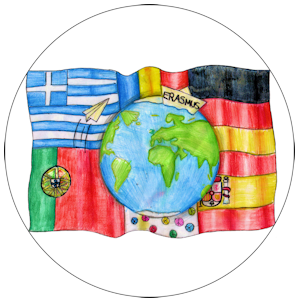
Our Team





Mobilities
TPM 1 - Germany - September 2017

LTTA 1 - Portugal - November 2017
LTTA 2 - Greece - April 2018
TPM 2 - Roménia - June 2018
LTTA 3 - Spain - October 2018
LTTA 4 - Germany - February 2019
LTTA 5 - Romania - May 2019
TPM 3 - Portugal - June 2019
EurHome
EurHome
Europe, our Shared Home

Europe, our Shared Home as a partnership arises from the current European paradox acknowledgement by the partner schools and from their wish to contribute, within their reach, to the formulation of a new narrative for Europe, as it was urged by the European Commission.
On the one hand, Europe is going through a crisis, and we watch its evidence every day; on the other hand, Europe is still seen as a transnational success story, with the capacity to attract masses of migrants from elsewhere.
To cope with this paradox, at the school level, we need to work in a new concept of European citizenship that, far from erasing regional identities and cultures, has to renew our interest for our regional traditions, under the scope of the humanities, the social sciences and the arts, but just to place it in perspective along with other regional identities and cultures. We also want to promote awareness to ongoing phenomena in Europe, like the migrants’ issues and to cope with the school failure and early leave within each school.
To do so, we, the partner schools from France, Poland, Greece and Portugal, define a set of clusters common to all the partners – in fact, to all Europeans – to research about within each school and to compare with all the schools in the partnership: Democracy, Migrations, the Age of Discoveries, the World War II and Regional Identities. Moreover, we allocate to each school in the partnership the deepening of one of this clusters, which will be the subject of our transnational teaching and learning activities as well as the subject of our research and presentations in school work.
Those educational activities will be based on J. Dewey’s progressivism and will search for curricular relevance, both in subjects as in methodologies. Therefore, the research and the results will combine the utilization and production of digital and interactive resources, like films, quizzes, tour guides, presentations, art performances, with the investment in local assets like world heritage sites, oral traditions and local cultural events that will thus become relevant for our students, instead of mere designations.
Like this we will have more motivated students, thus helping the schools to cope better with school failure and early leave, and better citizens for an after-paradox Europe.
By making relevant local history, sites and culture, the project will promote local synergies between schools and local authorities, building local partnerships for the future.
Our Team




Mobilities
TPM 1 - France- October 2016
TPM 2 - Portugal - June 2017
LTTA 1 - Greece- February 2017
LTTA 2 - Poland - April 2017
LTTA 3 -Portugal - October 2017
LTTA 4 - France - April 2018






